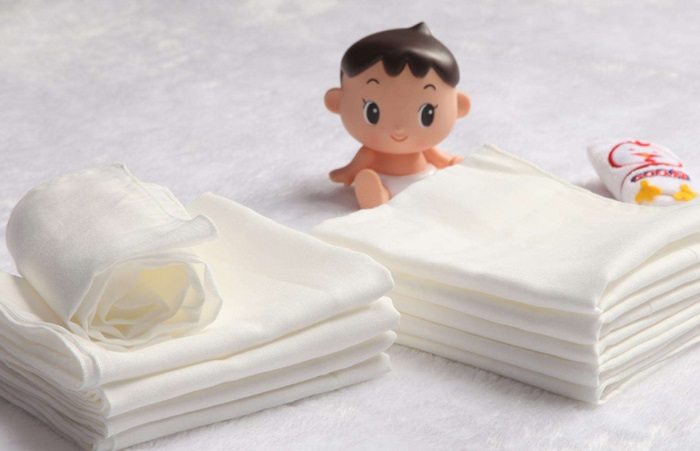1.Normal Bowel Movement Frequency in 3 – Week – Old Babies
Breastfed Babies
Frequency Range:Breastfed babies at three weeks of age typically have relatively frequent bowel movements. On average, they may have 3 to 4 poopy diapers per day, but it’s not uncommon for them to have as many as 10 or even more. Breast milk is easily digested, and the high – water content in breast milk contributes to more regular bowel movements. The natural laxative effect of breast milk, along with the beneficial bacteria in the mother’s milk that aid digestion, can lead to these frequent expulsions.
Stool Characteristics:The stools of breastfed babies are usually soft, seedy, and yellow. They often have a mustard – like consistency and a somewhat sweet, but not unpleasant, odor. The seedy appearance comes from undigested milk fat globules, which is normal in breastfed infants. The soft texture is a result of the easily – digestible nature of breast milk, and the yellow color is due to the breakdown of bilirubin in the baby’s digestive system.
Formula – Fed Babies
Frequency Range:Formula – fed babies at three weeks may have fewer bowel movements compared to breastfed counterparts. On average, they might have 1 to 2 poopy diapers per day. Formula is generally more difficult to digest than breast milk, as it has a different composition of proteins, fats, and carbohydrates. The proteins in formula, for example, are often less easily broken down by the baby’s immature digestive enzymes.
Stool Characteristics:Stools of formula – fed babies tend to be firmer than those of breastfed babies. They can range in color from yellow to brown. The odor is usually more pungent than that of breastfed baby stools. The firmness is related to the different nutrient composition in formula, and the color can be influenced by the type of formula (e.g., some formulas contain added iron, which can darken the stools).
2.Factors Affecting the Number of Poopy Diapers
Feeding Patterns
Frequency of Feedings:Babies who are fed more frequently are likely to have more bowel movements. A 3 – week – old baby who nurses or takes a bottle every 2 to 3 hours will have more food passing through their digestive system compared to a baby who feeds less often. Each feeding provides nutrients that stimulate the digestive process, and eventually, the waste is expelled.
Amount of Food Consumed:The amount of milk or formula a baby takes in also plays a role. A baby who has a larger appetite and consumes more at each feeding will produce more waste. For example, if a formula – fed baby starts taking an extra ounce or two per feeding, it can lead to an increase in the number of poopy diapers.
Individual Digestive System Variations
Maturity of the Digestive System:The development of a baby’s digestive system can vary from one infant to another. Some babies may have a more mature digestive system at three weeks, allowing them to process food more efficiently and have more regular bowel movements. Others may take a bit longer to develop the necessary enzymes and gut motility, which can affect the frequency and consistency of their stools.
Genetic Predisposition:There may be a genetic component to bowel movement frequency. If parents or close relatives have a history of certain digestive traits, such as slow or fast digestion, it could potentially influence the baby’s bowel habits. For example, if a parent has a naturally fast metabolism, the baby might also be more likely to have more frequent bowel movements.
Health Conditions
Allergies or Intolerances:Allergies or intolerances to certain foods can also affect the number of poopy diapers. If a formula – fed baby is allergic to cow’s milk protein, for example, they may have more frequent, often loose and bloody stools. In the case of a breastfed baby, if the mother consumes something that the baby is intolerant to, such as dairy products, it can cause changes in the baby’s bowel habits.
3.When to Be Concerned about Poopy Diaper Frequency
Abnormal Stool Characteristics
Extreme Changes in Consistency:If a baby’s stools suddenly become extremely hard, like small pellets, it could indicate constipation. This is a concern as it can be painful for the baby. On the other hand, if the stools are very watery, it may be a sign of diarrhea. Persistent diarrhea can lead to dehydration in a young baby, which is a serious condition.
Unusual Color:Stools that are black, red, or white can be a cause for concern. Black stools may indicate bleeding in the upper digestive tract, red stools could be due to bleeding in the lower digestive tract or the presence of undigested blood, and white stools may be related to a problem with the liver or bile ducts.
Significant Deviation from Normal Frequency
Too Many Poopy Diapers:If a breastfed baby has more than 10 – 12 poopy diapers per day for several days in a row, along with signs of discomfort like excessive crying or poor feeding, it’s worth consulting a pediatrician. Similarly, if a formula – fed baby has more than 4 – 5 poopy diapers per day when they usually have 1 – 2, it could be a sign of an underlying issue.
Too Few Poopy Diapers:If a breastfed baby has less than 3 poopy diapers per day for more than a couple of days, or a formula – fed baby has no bowel movement for more than 2 – 3 days, it’s important to seek medical advice. This could be a sign of constipation or other digestive problems.


